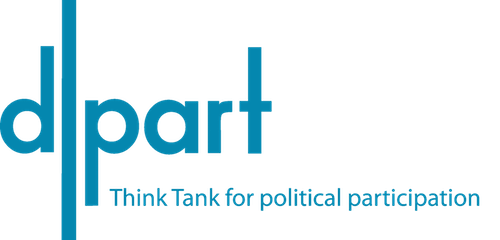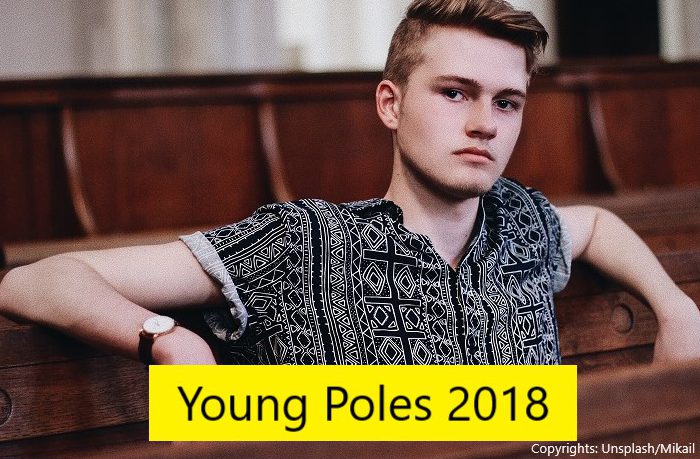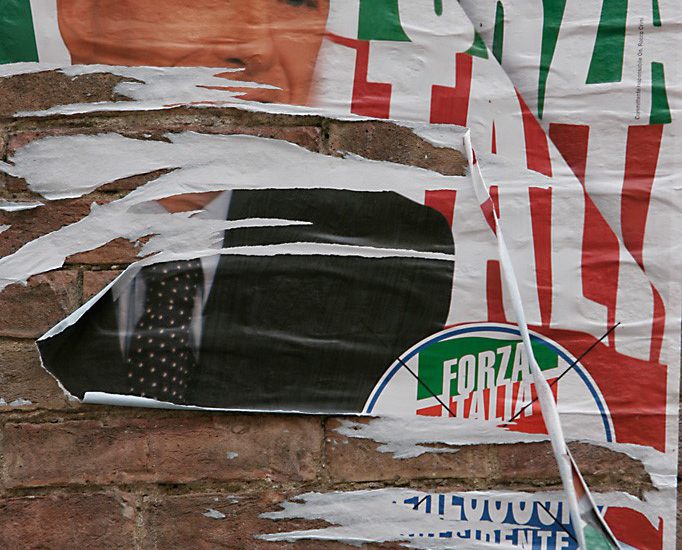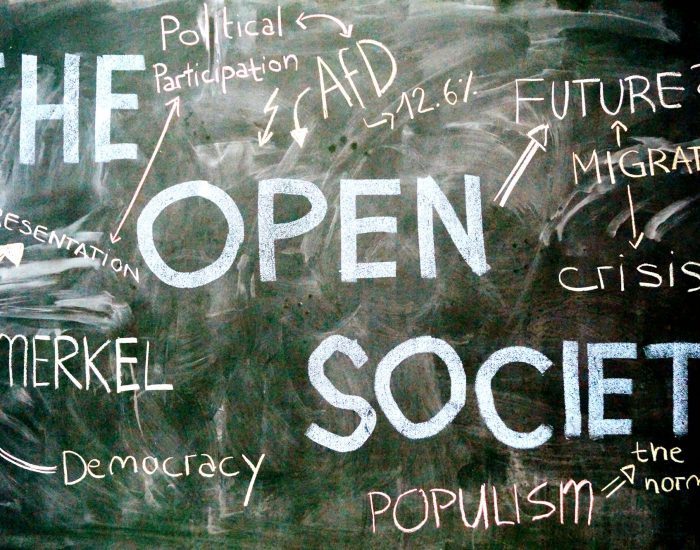Reason or openness? The French Paradox
By Catherine Fieschi.
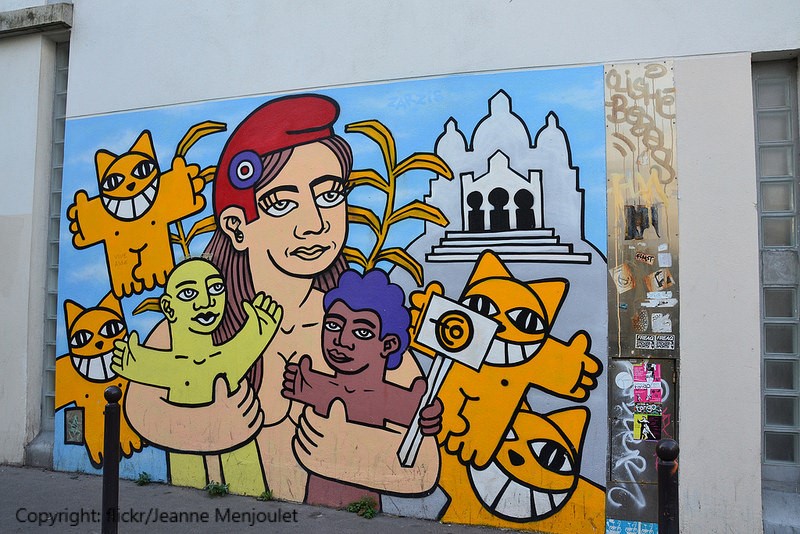
If you want to carry out an interesting experiment, go out to dinner with some of my French compatriots and coax the conversation toward a discussion of ‘open societies’. Anywhere else in the world, you would be sitting with your liberal (in the sense of ‘socially liberal’) friends – mostly drawn from the centre or the centre-left of the political spectrum, or perhaps an enlightened version of Christian Democracy – and you would quickly agree on the undeniable benefits of an ‘open society’. This same conversation in France will dredge up a few particulars – and quite a bit of disagreement from people with whom you would otherwise agree on most things.
On the matter of the open society, over the past few years France has drawn a lot attention to itself given the galloping gains made by the Front National (FN) – to the extent that some trembled at the thought that Marine Le Pen might beat any candidate in the second round of last spring’s presidential election. The FN had succeeded for years in dictating the French political and policy agenda; This has meant that political debate has been dominated by matters of national identity (Sarkozy went as far as to create a government department for ‘national identity’ in an attempt to out-LePen, Le Pen), the role of religion in the public realm, inane debates about burkinis, more pressing debates about failed integration as well as inevitable debates about the cost of immigration. All this in a context of terrorist attacks and increased security measures. Le Pen’s voters have not disappeared in the aftermath of Macron’s victory, but the latter has, for the moment, put a stop to the FN’s monopoly on political discourse. This gives the French a chance to re-examine their attachment to the values of openness, diversity, and inclusion — away from the continuous hysteria whipped up by the FN and by some of the mainstream right.
In what one hopes will be a long parenthesis of sanity leading to a more serene attitude toward these issues, the re-examination promise to be interesting. In great part because the open society is not only a taboo for the populist right and its voters – it can often, as suggested earlier, be a taboo for French progressives. The roots of this mistrust are often misunderstood and they are worth examining as we embark on the Voices on Values project.
The different conceptions of an ‘open society’
The expression ‘open society’ encourages countless questions – is this a society whose institutions encourage openness toward the world? Openness toward each other? Are the two necessarily connected? Or one whose institutions are very light-touch in terms of regulation both of the market and of the market of ideas? Is this simply a socially liberal society that tolerates very different attitudes and behaviours? Or a society in which all opinions are given equal weight? Or are expressible? For many, an open society is one that abides by Karl Popper’s definition that an open society is one in which no one has monopoly on the truth. Of course, we know that this begs the fundamental question: must we not at least have one truth—that no one should have a monopoly on the truth. Much as it may sound like it, students of liberal democracy know that this is not the neutral ideological ground it purports to be. It is a liberal position–with which many will disagree.
Such a disagreement is the basis upon which the French case becomes particularly tortuous: Because from day one of the Republic, reason was billed as the only truth. In reaction to the privileges of the monarchy and the superstition of religion, the French revolution enshrined reason as the basis for politics – thereby relegating belief (except belief in reason) to backward, suspect, pre-revolutionary times. As a result, French society sees itself as rightly, foundationally, driven by reason rather than openness — and to some extent sees them as a zero-sum game. But through the prism of reason, many attitudes, preferences, and beliefs that some include in a society that regards itself as ‘open’ could then be simply relegated to the private realm – becoming invisible.
None of what happens subsequently in France can be divorced from the strength of belief in this foundational moment in which every individual enters into a deeply metaphysical relationship with the Republic that protects him or her from the shackles of belief in order to exercise their right as a citizen. This means that the Republic’s moto (liberty, equality and brotherhood/solidarity) are guaranteed through the privileging of one truth: reason. The reasoning (no pun intended) is that through reason you are free of belief, reason preserves the level playing field by being blind to difference (religious, linguistic, ethnic, wealth). And between these reasonable equal citizens, solidarity is uninhibited.
Paradoxes and reality
For many, an open society without a foundational truth is an open door to acknowledging differences that will impede reason, and will impede equality. An example of this is the attitude toward head-covers in public spaces. For many French people, and mainly progressives, allowing this kind of difference in what is the space of reason (the state, public schools, public services) is a sure-fire way of getting in the way of a level playing field. Recognition of religion or ethnicity is taboo in part because it is felt to be antithetical to freedom and equality. The reason multiculturalism, or ‘worse’ communitarianism, is by and large unacceptable in France, is in part because it is seen as a Trojan horse for a recognition of difference that is both a) rooted in personal superstition or belief, and/or b) as an act that would fundamentally run against the necessary neutrality that guarantees freedom.
Many have argued (myself included) that there are plenty of ways in which this Republic ends up discriminating against difference anyways,[1] but it is important to recognise that the concept of an open society can be problematic for people whose aims and attitudes are quite specifically progressive. Indeed, for some, the notion of an open society is one that is at odds with an egalitarian society – because its very openness undermines the role of the state; A state that is still thought of as playing an active role in protecting citizens and guaranteeing equality. This is how one can actually find both a right-wing populist party such as the FN and a progressive socialist party in favour of a ban on head-coverings for girls in schools. Both can defend their position on the grounds of a Republic that allows no differences in state schools in order to protect equality.
French attitudes
The French case study we are conducting as part of the Voices on Values project is designed to measure what kind of attitudinal change there has been in France around the concept of an open society and the relationship to diversity that it entails. What does being an open society mean in France in 2018? What are the other ways in which inclusion and diversity are being talked about? The recent reports[2] by the CNCDH (France’s highest human rights authority) are encouraging: there seems to be deep attitudinal change. On the other hand, there is a staunch refusal to discuss diversity and inclusion through the vocabulary of multiculturalism or recognition. Can a reasonable society substitute itself to an open one? And can it protect society’s most vulnerable, and grant them access to institutional goods and representation which is what openness should represent politically? Watch this space.
–
Dr Catherine Fieschi is Founder and Executive Director of Counterpoint.
Disclaimer
The views and opinions expressed in this article are those of the author.
–
[1] See Cecile Laborde, ‘Laïcité, séparation, neutralité’, in Jean-François Dupeyron, Christophe Miqueu (eds.) Ethique et déontologie dans l’Education Nationale. Paris: Armand Colin, 2013, pp. 171–183.
[2] http://www.cncdh.fr/fr/publications/publication-du-rapport-droits-de-lhomme-en-france-dans-la-perspective-de-lexamen
